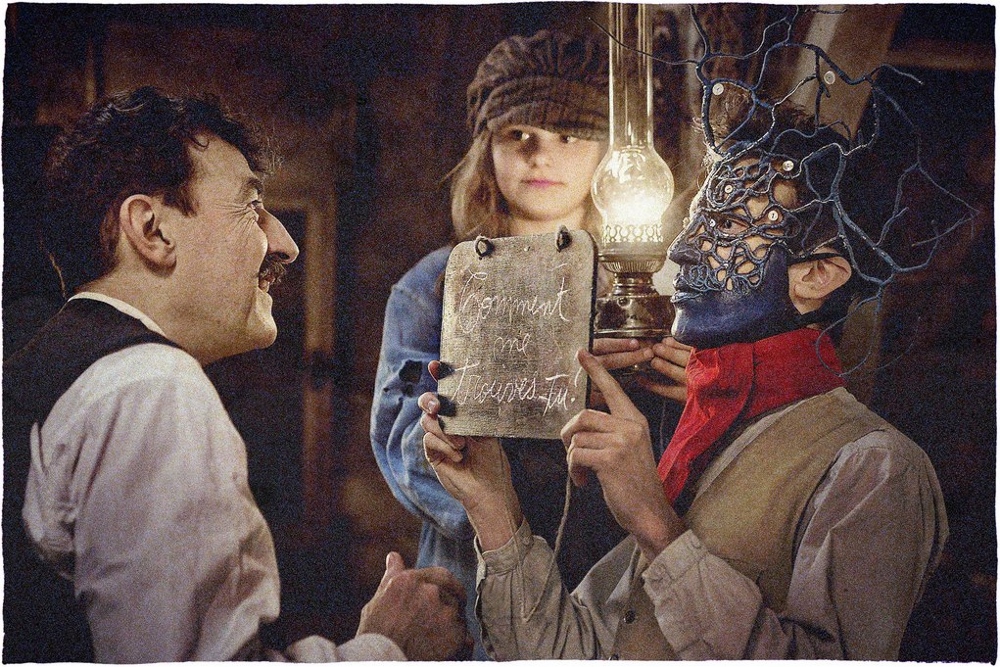The French Film Festival will open this year with Albert Dupontel’s Au revoir là-haut, a visually enticing and complex film that explores the ravages of war, and the bonds of friendship. Based on Pierre Le Maitre’s eponymous novel, winner of the prestigious Goncourt Prize,the film reaped its own abundant harvest of awards, winning Best Director, Best Adaptation, Best Costume Design, and Best Production Design at the 43rd César Awards. Dupontel, who both directed and starred in the film, will be present at the Israeli premiere screening.

Now in its 15th edition, the festival will take place from March 13 – April 7, 2018, produced by Eden Cinema and the French Institute in Israel, and sponsored by Unifrance Films, The French Institute in Paris, and the Tel Aviv Municipality Department of Performances. The festival films will be screened at the cinematheques in Tel Aviv, Haifa, Jerusalem, Holon, Herzliya, Sderot, Rosh Pina, and the Ashdod Globus Max.

Director Robert Jules Guédiguian and actor Ariane Ascaride, partners in work and life, will be guests of the festival, presenting their film The House by the Sea. Their previous joint film, The Snows of Kilimanjaro, focused on a working-class couple in Marseilles, and the impact of the economic crisis on their lives and relationships. In their current film, Ascaride portrays Angèle, an actress who returns to the family home in a small fishing village after her father suffers a severe stroke. The focus is at once personal and intimate, examining the relationships and changes within the family, yet possesses a wider resonance, in a narrative thread that relates to the contemporary issue of refugees. Ascaride is intelligent, vivacious, and direct, onscreen and off, I had the privilege of an interview with her following the Haifa Film Festival premiere of The Snows of Kilimanjaro (read the full review here).
Another festival offering that focuses on family relationships is Le fils de Jean (English title: The Kid), directed by Phillipe Lioret. Set for the most part in the lush green landscape of Canada, like the calm surface of a lake there’s more to this deceptively low-key film than meets the eye. Mathieu (Pierre Deladonchamps), a Parisian business man with a penchant for writing, receives a message that Jean, the father he never knew, has died, and left a package for him. The message is delivered by Pierre (Gabriel Arcand), a friend and colleague of Jean’s, who, also divulges, after some prodding by Mathieu, that there are two adult sons. He decides to take some time off work and travels to Montreal, ostensibly to collect the package, but his true intention is to meet his brothers. The film unfolds in unexpected ways, plumbing the depths of relationships among couples, siblings, parents and children. There is excellent performances by the entire ensemble cast, but Deladonchamps and Arcand stand out with their moving, understated, and sensitive portrayals.
A very different film is Mathieu Amalric’s Barbara. Impressionistic, artistic, and very meta with its film-within-a film, Barbara reflects on the blurred boundaries between life and film, while capturing the sweeping emotions evoked by the popular French singer Barbara. Yves Zand (Mathieu Amalric) is directing a film about the life of his idol, Barbara, starring Brigitte (Jeanne Balibar). Zand is intent on verisimilitude, trying to replicate the minute details of Barbara’s voice and surroundings, and Brigitte is just as zealous. Resembling the tall, dark-haired singer, Brigitte listens to the songs, and watches Barbara on film, repeating her gestures and inflection. Scenes from the film they are making are interspersed with the making of the film, showing the perfection of the illusion and its fragility. The sensation is even more uncanny when one remembers that the Barbara in question is not a fiction, and brief archival footage of the singer is interspersed within the feature.
Born in Paris in 1930, Barbara (born Monique Andrée Serf) had to go into hiding at age 10 because she was Jewish. The impact of WWII and the Nazi occupation of France left an indelible mark, which can be felt in her songs. She began to study music after the war, and embarked on a career as a singer. Barbara developed close friendships with Jacques Brel and Georges Bressons, singing their repertoire, yet her career truly soared once she began writing her own songs. Unlike the typical bio-pic, Barbara does not relate the events of the singer’s life in any chronological form, or even at all. It’s a film about the making of a movie, and as such, is fragmented, making it difficult to distinguish between scenes that depict the life of Barbara, and scenes that depict the life of Brigitte playing Barbara. As Zand, Amalric burns with passion and obsession, and Balibar’s performance is incandescent.
The complete list of films is available on the French Film Festival website.





